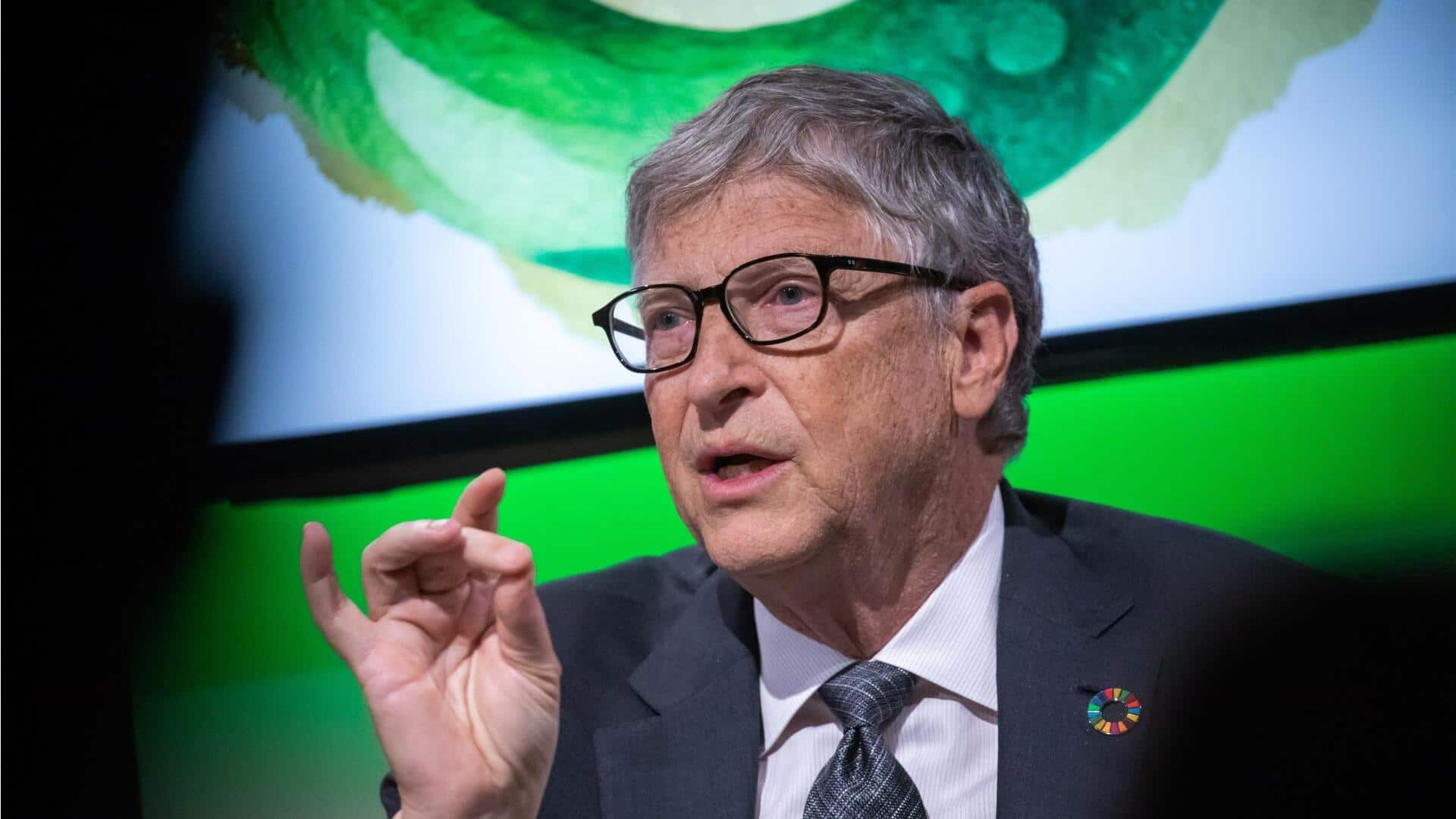
Bill Gates backs effort to standardize carbon removal methods
What's the story
The Carbon Removal Standards Initiative (CRSI), a project aimed at developing standards for carbon dioxide (CO2) removal from the atmosphere, has been launched. The initiative is supported by Breakthrough Energy Ventures, the climate investment firm of billionaire philanthropist Bill Gates. This launch comes at a time when companies are increasingly adopting CO2 removal technologies to achieve their sustainability goals.
CDR challenges
Concerns surrounding CDR technologies
Carbon dioxide removal (CDR) technologies vary significantly, from constructing industrial facilities to filtering CO2 from the air or seawater. However, concerns have been raised about their effectiveness in combating climate change. For example, new industrial facilities consume a substantial amount of energy and the captured carbon could potentially be used to produce more oil and gas. There is currently a lack of oversight to ensure that the new project fulfills its promises.
Standardization strategy
CRSI's approach to carbon removal standardization
The CRSI is committed to providing technical assistance to regulators and organizations working on carbon removal policies. It has compiled a publicly accessible database of industry white papers, academic papers, and other resources on the emerging landscape. According to Anu Khan, CRSI founder and executive director, unlike other initiatives, CRSI is taking a "bottom-up approach to standardization."
Industry initiatives
Industry efforts to advance carbon removal technologies
The European Union is currently developing the first certification framework for carbon removal technologies. Simultaneously, industry groups have initiated their own efforts to advance CDR. Companies such as Stripe, Alphabet, Shopify, Meta, and McKinsey Sustainability launched an effort called Frontier in 2022 to connect vetted carbon removal projects with firms interested in paying for their services.
Microsoft's commitment
Microsoft's efforts to reduce emissions
Microsoft, another major player investing heavily in carbon removal technologies, made one of the biggest purchases yet in July from oil giant Occidental's carbon removal project in Texas. Despite pledging in 2020 to reach negative carbon emissions by the end of the decade, Microsoft's carbon footprint has increased by around 30% since making that commitment, mostly due to its AI push.